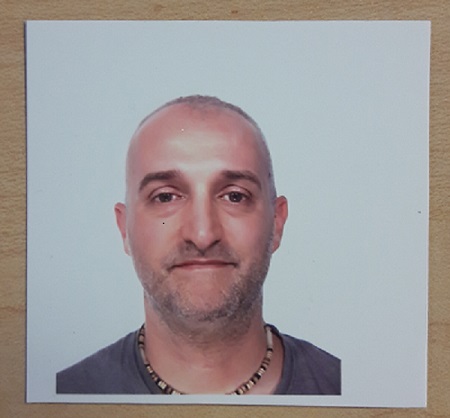Studying at the University of Verona
Here you can find information on the organisational aspects of the Programme, lecture timetables, learning activities and useful contact details for your time at the University, from enrolment to graduation.
Academic calendar
The academic calendar shows the deadlines and scheduled events that are relevant to students, teaching and technical-administrative staff of the University. Public holidays and University closures are also indicated. The academic year normally begins on 1 October each year and ends on 30 September of the following year.
Course calendar
The Academic Calendar sets out the degree programme lecture and exam timetables, as well as the relevant university closure dates..
| Period | From | To |
|---|---|---|
| Sem. IA | Sep 25, 2017 | Nov 11, 2017 |
| Sem. IB | Nov 13, 2017 | Jan 20, 2018 |
| Sem. IIA | Feb 26, 2018 | Apr 21, 2018 |
| Sem. IIB | Apr 23, 2018 | Jun 9, 2018 |
| Session | From | To |
|---|---|---|
| Sessione Invernale | Jan 22, 2018 | Feb 24, 2018 |
| Sessione Estiva | Jun 11, 2018 | Jul 28, 2018 |
| Sessione Autunnale | Aug 27, 2018 | Sep 22, 2018 |
| Sessione Straordinaria | Jan 14, 2019 | Feb 16, 2019 |
| Session | From | To |
|---|---|---|
| Sessione Estiva | Jul 16, 2018 | Jul 21, 2018 |
| Sessione Autunnale - Servizio Sociale | Nov 9, 2018 | Nov 9, 2018 |
| Sessione Primaverile | Apr 1, 2019 | Apr 6, 2019 |
| Period | From | To |
|---|---|---|
| All Saints Day | Nov 1, 2017 | Nov 1, 2017 |
| Immaculate Conception | Dec 8, 2017 | Dec 8, 2017 |
| Christmas break | Dec 22, 2017 | Jan 7, 2018 |
| Easter break | Mar 30, 2018 | Apr 3, 2018 |
| Liberation Day | Apr 25, 2018 | Apr 25, 2018 |
| Labour Day | May 1, 2018 | May 1, 2018 |
| Patron Saint Day | May 21, 2018 | May 21, 2018 |
| Republic Day | Jun 2, 2018 | Jun 2, 2018 |
| Summer break | Aug 13, 2018 | Aug 18, 2018 |
Exam calendar
Exam dates and rounds are managed by the relevant Humanistic Studies Teaching and Student Services Unit.
To view all the exam sessions available, please use the Exam dashboard on ESSE3.
If you forgot your login details or have problems logging in, please contact the relevant IT HelpDesk, or check the login details recovery web page.
Should you have any doubts or questions, please check the Enrollment FAQs
Academic staff
 stefania.annechini@univr.it
stefania.annechini@univr.it
 gaia.cetrano@univr.it
gaia.cetrano@univr.it
 roberto.dallachiara@univr.it
roberto.dallachiara@univr.it
 giorgia.decarli@univr.it
giorgia.decarli@univr.it
 annamaria.giarola@univr.it
annamaria.giarola@univr.it
Povolo Luciana
 antonella.salvan@univr.it
antonella.salvan@univr.it
Strano Silvana
 silvana.stranoligato@univr.it
silvana.stranoligato@univr.it
 +39 045 8028856
+39 045 8028856
 giorgio.zoccatelli@univr.it
giorgio.zoccatelli@univr.it
Study Plan
The Study Plan includes all modules, teaching and learning activities that each student will need to undertake during their time at the University.
Please select your Study Plan based on your enrollment year.
1° Year
| Modules | Credits | TAF | SSD |
|---|
2° Year activated in the A.Y. 2018/2019
| Modules | Credits | TAF | SSD |
|---|
3° Year activated in the A.Y. 2019/2020
| Modules | Credits | TAF | SSD |
|---|
| Modules | Credits | TAF | SSD |
|---|
| Modules | Credits | TAF | SSD |
|---|
| Modules | Credits | TAF | SSD |
|---|
Legend | Type of training activity (TTA)
TAF (Type of Educational Activity) All courses and activities are classified into different types of educational activities, indicated by a letter.
Sociology and social research - METODI DI RICERCA SOCIALE (2017/2018)
Teaching code
4S003175
Credits
6
Coordinator
Not yet assigned
Language
Italian
Scientific Disciplinary Sector (SSD)
SPS/07 - GENERAL SOCIOLOGY
To show the organization of the course that includes this module, follow this link: Course organization
The teaching is organized as follows:
Lezioni
Esercitazioni
Learning outcomes
LECTURES
The course aims to provide basic knowledge of methods and techniques of social research, with particular attention to the typical social worl contexts. The course will cover some forms of research and related techniques in both quantitative (questionnaire / web survey) and qualitative (interviews, focus groups, narratives) and in mixed-methods optics. General aim of this course will be to provide students with the cognitive and analytical tools to read, critically analyze, set up social research in their future competences and to formulate empirically-based interpretations / explanations.
The course provides a part of lessons where the topics will be addressed through frontal lessons, within which you will always try to offer examples and application possibilities related to the world of social service and the profession of social worker.
PRACTICAL CLASSES
The course aims to provide basic knowledge of methods and techniques of social research, with particular attention to the typical social worl contexts.
The course will cover some forms of research and related techniques in both quantitative (questionnaire / web survey) and qualitative (interviews, focus groups, narratives) and in mixed-methods optics.
General aim of this course will be to provide students with the cognitive and analytical tools to read, critically analyze, set up social research in their future competences and to formulate empirically-based interpretations / explanations.
The part of the tutorial course will see the students engaged in practical and firsthand experimenting with the research techniques. The teacher will provide the necessary materials from time to time and / or ask the students to bring ad hoc materials for each exercise.
Program
LECTURES
The course introduces the different patterns of social research, illustrating its typical phases, investigation techniques, collection / detection / co-construction of data and information, data analysis (descriptive statistics) and information (qualitative analysis of content), the spendiness of research, the sense of research in social service environments.
The course does not require specific prior knowledge. The course does not require specific prior knowledge.
Lesson Schedule
1. General introduction to social research paradigms.
2. Quantitative Research (Approaches, Theories, Survey Techniques).
3. Qualitative research (approaches, theories, investigation techniques).
4. Research applications for some social service issues.
5. Social Search in the Web: Tools, Potential, Limits.
PRACTICAL CLASSES
The course introduces the different patterns of social research, illustrating its typical phases, investigation techniques, collection / detection / co-construction of data and information, data analysis (descriptive statistics) and information (qualitative analysis of content), the spendiness of research, the sense of research in social service environments.
CONTENT OF EXERCISES
1. Design and construction of a research project.
2. Using 2.0 Technologies to Implement Online / Quantitative Search (Using the Google Drive Package): Build a Survey Survey Questionnaire.
3. Telling: biographical techniques and biographical tools.
4. Read a research in a critical way.
Bibliography
| Activity | Author | Title | Publishing house | Year | ISBN | Notes |
|---|---|---|---|---|---|---|
| Lezioni | Oprandi N. | Focus group. Breve compendio teorico | Emme Erre | 2001 | Durante il corso saranno fornite le informazioni per reperire il testo. | |
| Lezioni | Niero M. | Introduzione alla progettazione e alla pratica della ricerca sociale | Guerini Scientifica | 2005 | 8881071908 | Durante il corso verranno indicati i capitoli di riferimento sia per le lezioni sia per le esercitazioni. |
| Lezioni | Lonardi C. | Raccontare e raccontarsi. L’approccio biografico nelle scienze sociali | QuiEdit - Verona | 2006 | Solo da pag. 21 a pag. 34 e da pag. 41 a pag. 128. | |
| Esercitazioni | Oprandi N. | Focus group. Breve compendio teorico | Emme Erre | 2001 | Durante il corso saranno fornite le informazioni per reperire il testo. | |
| Esercitazioni | Niero M. | Introduzione alla progettazione e alla pratica della ricerca sociale | Guerini Scientifica | 2005 | 8881071908 | Durante il corso verranno indicati i capitoli di riferimento sia per le lezioni sia per le esercitazioni. |
| Esercitazioni | Lonardi C. | Raccontare e raccontarsi. L’approccio biografico nelle scienze sociali | QuiEdit - Verona | 2006 | Solo da pag. 21 a pag. 34 e da pag. 41 a pag. 128. |
Examination Methods
Examination consists of two distinct parts.
First part. Written exam: 3 open questions about the topics of the lessons and the texts indicated in the program.
Examination concerns:
- understanding of the main concepts discussed in the course;
- clarity of exposure;
- the ability to critically analyze methodological choices;
- the ability to propose appropriate research strategies to a concrete case.
Part Two: a small research project (web survey) and data analysis. For this second part, students will be invited to work in groups. During the lessons, students will have all the information to build the project.
Intermediate / intermediate tests (partial or total) of the first test may be agreed upon.
The final vote will be given by the average of the votes obtained in the two trials.
Type D and Type F activities
Modules not yet included
Career prospects
Module/Programme news
News for students
There you will find information, resources and services useful during your time at the University (Student’s exam record, your study plan on ESSE3, Distance Learning courses, university email account, office forms, administrative procedures, etc.). You can log into MyUnivr with your GIA login details: only in this way will you be able to receive notification of all the notices from your teachers and your secretariat via email and soon also via the Univr app.
Student mentoring
Linguistic training CLA
Gestione carriere
Practical information for students
Documents
| Title | Info File |
|---|---|
|
|
pdf, it, 325 KB, 02/05/23 |
|
|
pdf, it, 212 KB, 02/05/23 |
|
|
pdf, it, 131 KB, 02/05/23 |
Graduation
Documents
| Title | Info File |
|---|---|
|
|
pdf, it, 99 KB, 13/10/23 |
|
|
pdf, it, 101 KB, 10/04/24 |
List of theses and work experience proposals
| theses proposals | Research area |
|---|---|
| Proposta tesi | Various topics |
Assistente Sociale
Comune e Università di Verona collaborano per la formazione alla professione di assistente sociale.
Professione Assistente Sociale
Pagina aggiornata il 18/1/2022
Stage e Tirocini
Le attività̀ di tirocinio degli studenti si svolgono presso strutture esterne, convenzionate con l’Università degli Studi di Verona ai sensi delle vigenti disposizioni in materia. Nelle strutture esterne gli studenti svolgono le attività di tirocinio sotto la responsabilità di un assistente sociale (Tutor-supervisore), appartenente a dette strutture, coordinato a sua volta dal responsabile del tirocinio presso il Corso di Studio.
In assenza di un assistente sociale, operante nella struttura esterna, il Collegio didattico, per quanto di competenza, decide, su proposta dei responsabili del tirocinio, in ordine alle condizioni per l’effettuazione o la prosecuzione delle attività di tirocinio degli studenti interessati. Le attività di tirocinio sono obbligatorie per almeno 450 ore.
Il Collegio didattico, in deroga alle disposizioni del presente articolo, può consentire a studenti che si trovino in particolari condizioni, in specie se disabili, lavoratori o impegnati in organismi collegiali dell’Università degli Studi di Verona, di non ottemperare in parte all’obbligo di frequenza alle attività di tirocinio, predisponendo forme alternative di tirocinio, anche tramite supporti telematici e multimediali interattivi.
I responsabili delle attività di tirocinio presso il Corso di Studio, anche avvalendosi di appositi collaboratori o tutori esterni, accertano la presenza degli studenti presso le rispettive strutture. A tal fine utilizzano un apposito libretto di frequenza per ciascuno studente.
Al termine dell’attività di tirocinio, lo studente deve presentare una relazione scritta al responsabile di tale attività presso il Corso di Studio. Lo studente elabora la relazione scritta, controfirmata dal Tutor-supervisore. La relazione finale viene valutata dal responsabile del tirocinio presso il Corso di Studio e deve tenere conto degli obiettivi prefissati dal Collegio didattico.
La valutazione viene attribuita al tirocinio nel seguente modo: sufficiente = 1; buono = 2; ottimo = 3; eccellente = 4 e verrà aggiunta alla media dei voti del curriculum al momento della discussione della tesi.
Gli Uffici della Direzione Didattica e Servizi agli Studenti predispongono la documentazione necessaria allo svolgimento delle attività̀ di tirocinio, comprese attestazioni e certificazioni.
Nel caso in cui lo studente partecipi a programmi di mobilità internazionale, le attività̀ di tirocinio vengono regolamentate come segue:
A – Lo studente svolge il Tirocinio presso la sede estera.
Se lo studente svolge il Tirocinio all’estero si ritengono assolti gli obbligo relativi al Laboratorio se:
- - lo studente aggiorna il proprio docente/tutor con brevi relazioni mensili da inviare mezzo mail, sull’andamento del lavoro svolto presso la sede estera;
- - produce una relazione finale completa del tirocinio svolto.
La valutazione finale del laboratorio di guida al tirocinio sarà̀ effettuata da parte del tutor del laboratorio sulla base della relazione dello studente tenendo conto della eventuale valutazione da parte del supervisore estero.
B – Lo studente non svolge il Tirocinio presso la sede estera.
Se lo studente non svolge il Tirocinio nella sede estera e lo deve fare al rientro:
lo studente effettua uno/due incontri individuali iniziali con il docente/tutor in cui predisporre quanto necessita per l’avvio del tirocinio e nei quali verranno forniti materiali, griglie ed eventuali testi di riferimento;
invia brevi relazioni mensili sull’andamento del tirocinio che sarà svolto in Italia al di fuori del periodo in cui si tiene il laboratorio di guida al tirocinio;
produce la relazione finale completa del tirocinio svolto”.
- Tutte le informazioni in merito agli stage per futuri studenti sono disponibili alla pagina Stage e tirocini.
- Tutte le informazioni in merito agli stage per studenti iscritti sono pubblicate in MyUnivr - come fare per - stage e tirocini.
- Tutte le informazioni in merito agli stage per le aziende sono disponili alla pagina Stage e tirocini per azienze.




















